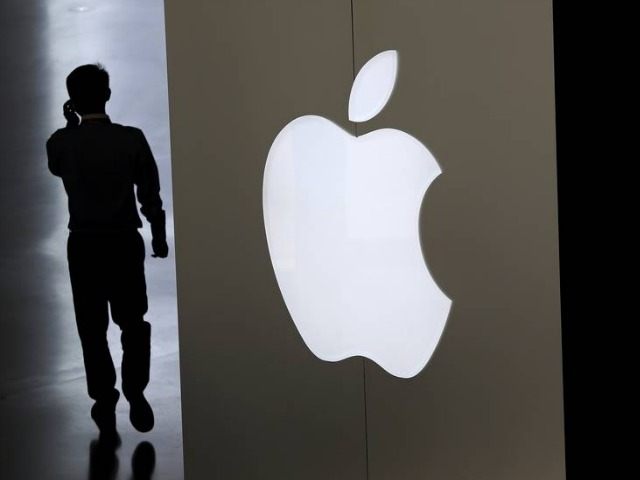Apple (NASDAQ:AAPL=$115) stock has plunged about $114 billion in market value since the company reported very good quarterly sales and earnings two weeks ago.
Breitbart News had warned that Apple’s stock would be in for a rough ride after management bet the company on continued spectacular growth in the “Red Dragon,” whose stock market was crashing. But Apple’s rough ride may get even worse with the iPhone now losing market share in China.
Apple’s stock price peaked in March, when the Dow Jones & Company announced that Apple, Inc. would be replacing telephone, cable and Internet service provider AT&T, which had been one of the 30 companies in the “Blue-Chip” stock index for the last 99 years. Adding Apple to the Dow caused big investors to purchase billions of dollars of Apple stock, including the Swiss National Bank, which bought $400 million of Apple shares. The move was trumpeted as especially timely, since it came just days before the launch of the Apple Watch.
But, unknown to most investors until Apple’s July 20 earnings report, one of the main drivers that pushed Apple’s stock price up by 30 percent in the first six months of 2015 had been the company’s spending $11 billion buying back its own stock at an average price of $125.53 per share–about $10 above the current market price.
Ten days before the earnings announcement, Breitbart News highlighted that the reason iPhone sales had been growing five times faster than Samsung in the second quarter, despite excellent reviews of Samsung’s new Galaxy S6/Edge, was due to Apple’s “Greater China” sales leaping by 71 percent.
With 56 percent of Apple’s total company revenue growth this year coming from Greater China, and the nation in the grips of an epic $3 trillion stock market collapse, Breitbart News warned that Apple’s growth was at risk of collapsing along with China’s economy.
Not only is Apple being hurt by consumer sales plummeting in China, but Canalys.com tech consultants also just reported that Apple iPhone’s share of the in China’s smartphone market fell to third place in the April through June period behind local competitors Huawei and Xiaomi. According to Canaly’s Jingwen Wang, “The China smart phone market continues to mature, remaining stagnant quarter-on-quarter. Competition among major brands has never been so intense.”
According to Kantar Worldpanel Com Tel consultants, the iPhone 6 remains the best-selling smartphone in the U.S., and the iPhone 6 Plus was the fifth-most-popular for the period ending May 30. But Samsung’s Galaxy S5 held the second spot, and the Galaxy S6 held third place. As a result, for the three months ending May, Apple’s iPhone U.S. sales actually declined by 5 percent from the previous year.
Kantar also highlighted Apple’s poor performance in India and the three big Latin America markets of Mexico, Brazil and Argentina. Apple’s best penetration of these rapidly growing markets is Mexico, where Apple only holds a 6.4 percent market share.
Apple’s earlier success in the “Red Dragon” was due to a concerted effort by management to make iOS and Mac OS X easier for Chinese language users. Many of the upgrades at this year’s Apple Worldwide Developers Conference were optimized specifically to target Chinese users, including new tools for developers to respond to the unique challenges associated with Chinese language.
Apple has also won praise for the effectiveness of its Chinese retail stores and “Genius Bar” help-desks. The company earlier this year announced that Apple had opened 5 new stores in premium retail space in China, and is expanding from 15 to 40 stores. But with China in an economic nose dive and Apple now losing market share in the country, Apple stock could be in for a rougher ride.

COMMENTS
Please let us know if you're having issues with commenting.